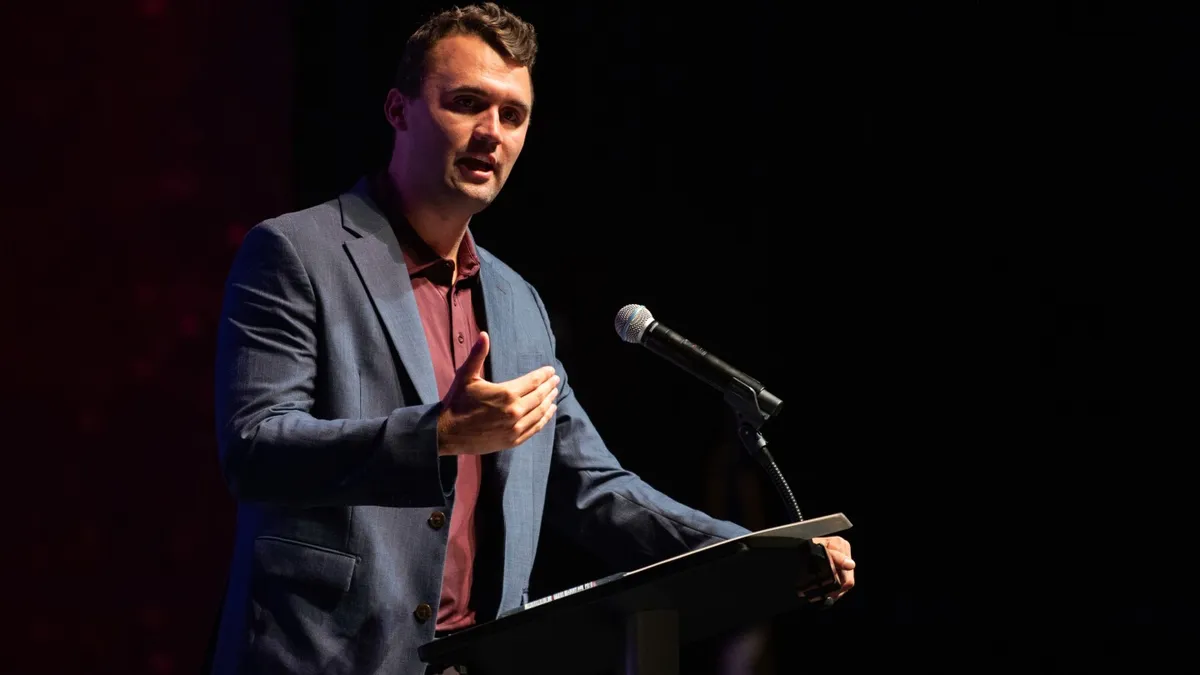
In the wake of the tragic shooting of conservative activist Charlie Kirk, a wave of firings has swept through various workplaces, notably affecting individuals who made public comments regarding his death. Among those dismissed is Matthew Dowd, an MSNBC political analyst. This incident is not isolated; it highlights a growing trend where employees face consequences for their public statements, particularly on social media platforms.
In the United States, the legal landscape surrounding employee speech varies significantly by state, yet there is a general lack of robust protections for workers who face repercussions for both on-site and off-site speech. Vanessa Matsis-McCready, associate general counsel and vice president of HR Services at Engage PEO, emphasizes, “Most employees in the private sector do not have any protections for that type of speech at work.” This reality contrasts with the common belief that individuals have a right to free speech, as this right does not necessarily extend to the workplace environment.
The rise of social media has intensified the scrutiny of employees' behaviors outside of work. Platforms often serve as a record of personal opinions, which can lead to doxxing—publicly sharing personal information to incite harassment or harm. In many cases, employers possess considerable discretion regarding disciplinary actions taken against employees for their online conduct.
Protections for employees regarding political activities differ from state to state. For instance, in New York, employees participating in political protests without directly associating their actions with their employer cannot be terminated for such engagements. However, if an employee expresses controversial political views at a company event that creates discomfort or perceived threats among colleagues, they may face disciplinary actions.
Most states operate under “at-will” employment laws, meaning employers can dismiss workers for nearly any reason, including their speech. Legal expert Andrew Kragie points out that while there are some laws that protect workers from being penalized for political views, enforcement of these laws can be inconsistent, leading to confusion.
Steven T. Collis, a law professor at the University of Texas at Austin, notes that public employees experience a different set of rules due to First Amendment protections when the government is the employer. However, this hasn’t stopped public sector organizations from implementing restrictive policies following Kirk’s death. For example, the Pentagon announced a “zero tolerance” policy regarding any posts that seemed to trivialize or celebrate the shooting. This policy was swiftly enacted after military influencers raised concerns over certain social media comments.
The accessibility of social media has transformed how political opinions are shared, making it easier for individuals to express their thoughts on current events. However, this openness can harm both personal and corporate reputations. Amy Dufrane, CEO of the Human Resource Certification Institute, emphasizes that social media is akin to the town square, where individuals must recognize the public nature of their comments.
As political discussions increasingly permeate workplace environments, many HR professionals express feeling unprepared to manage these sensitive topics. Dufrane advises that employers must establish clear policies outlining acceptable conduct and communicate these expectations to employees. As political tensions rise, it becomes crucial for organizations to define what constitutes appropriate workplace behavior.
The aftermath of Kirk's violent death has prompted some employers to reevaluate their policies regarding employee speech. Matsis-McCready highlights that companies are more aware of their employees' public statements, as negative online comments can quickly escalate into public relations issues. “Some individuals whose posts went viral prompted a flood of complaints to their employers,” she notes.
Despite the heightened scrutiny, experts like Collis do not foresee significant changes in the way employers monitor employee speech. For over a decade, companies have actively vetted employees based on their social media activity, suggesting that this practice is likely to continue.